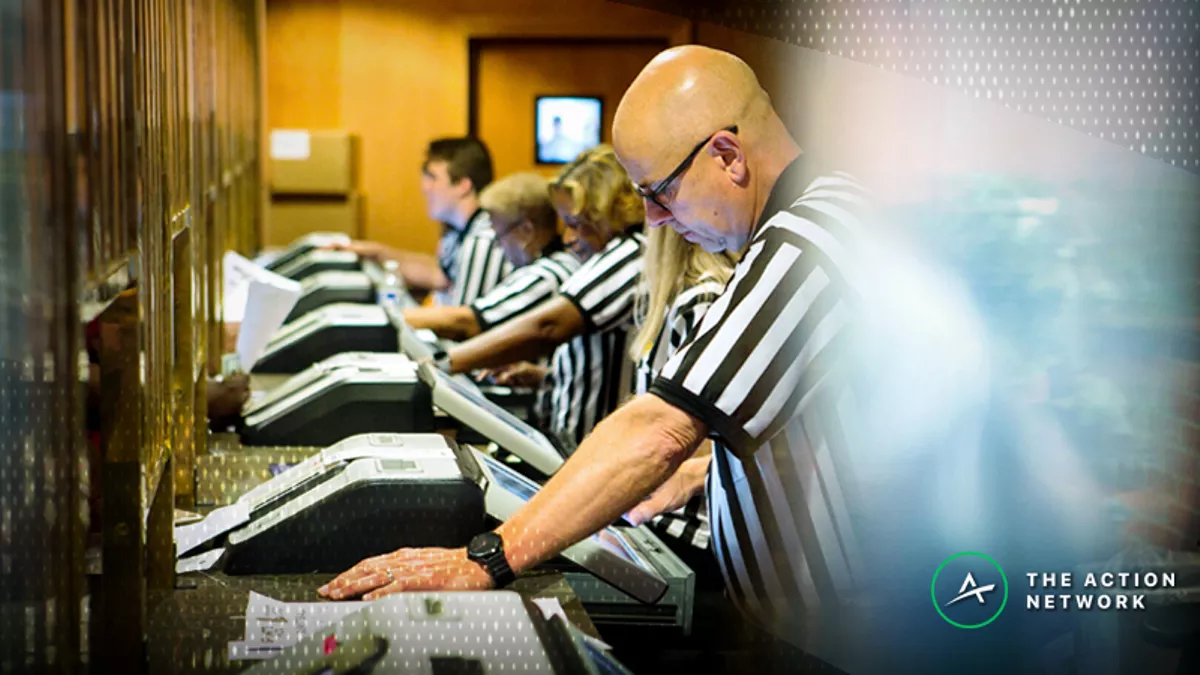Gambling can be a dangerous vice for some people– even more so because it's now entirely electronic. You can lose money in seconds without ever getting off the couch.
Sportsbooks let you set parameters around your betting, like deposit limits and cool-off periods. But those are temporary and can be easily circumvented. You can open an account at a new sportsbook or turn off your limits to place more bets, all in just a few seconds from your phone.
That's why some people need an outright ban. And there is a way to ban yourself from all operators in your state with just a single application.
It's called self-exclusion or voluntary exclusion.
Self-exclusion programs are run through each state's gaming enforcement department, and put you on a list that will prevent you from signing up or logging in at any online sportsbook or casino. That way if you go to log in to a sportsbook or sign up at a new one, the operator will have your name and identity flagged.
Many states have a statewide program that will allow you to ban yourself from all gaming entities in the state.
From New Jersey's self-exclusion FAQ:
"For Internet gaming activities, the Division will distribute information filed through your player account or provided on your self-exclusion application for Internet Gaming to each casino licensed Internet gaming permit holder."
But a few, like Colorado and Nevada, require you to request bans from each casino or operator individually.
How Long Will I Be Banned For?
That's up to you, though it depends a bit on the state's rules. Many states allow you to self-exclude for anywhere from 1-5 years, or for your lifetime.
Once you file your application, you will not be reinstated before your chosen time frame, under any circumstances. Once the time limit is up, you can apply to be reinstated.
Can I Exclude Someone Else?
No. You cannot apply for self-exclusion on a family member or friend's behalf. They must do it themselves.
How to Self Exclude
Most states have separate self-exclusion programs for online gambling and casino gambling.
Make sure you check out more info on your state before proceeding. Simply Google "Pennsylvania self exclusion" to find more info and the application, or click the links we've compiled below.
Each state is slightly different. In New Jersey for example, you can self-exclude from online gambling only, or in-person and online gambling.
Here are a few resources by state. Click the links on each state for more details and the self-exclusion application instructions.
- Arizona: Can enroll by mail, form must be notarized.
- Colorado: You must self-exclude with each sportsbook, though the state is trying to change that. You can self-exclude from all casinos with this form.
- Connecticut: Enroll online.
- Indiana: Enroll online.
- Illinois: Self-exclusion must be done in person.
- Iowa: Enroll by mail or in-person.
- Kansas: Lifetime ban or two-year ban; enrollment must be done in person.
- Louisiana: Must enroll in person; minimum five-year ban.
- Maryland: In-person enrollment only.
- Massachusetts: Phone, online, or in-person self-exclusion.
- Michigan: Form can be filled out digitally and emailed.
- Mississippi: Must enroll in person.
- New Jersey: Can be submitted online.
- Nevada: There is no statewide program. A casino must honor requests to no longer deposit and bet, but does not require it to ban guests from the casinos. You must request exclusion from each casino separately.
- New York: Form can be submitted by mail, but must be notarized.
- Ohio: Ohio's self-exclusion rules aren't totally clear yet as it ramps up for live sports betting on Jan. 1. Its form right now says "DRAFT" all over it.
- Oregon: Self-exclude in your DraftKings account.
- Pennsylvania: You can sign up online.
- Tennessee: In Tennessee, you must self-exclude through the sportsbooks themselves.
- Virginia: Enroll online
- West Virginia: You can enroll by mail, but it must be notarized.
- Wyoming: Must enroll by mail or in person.






















































